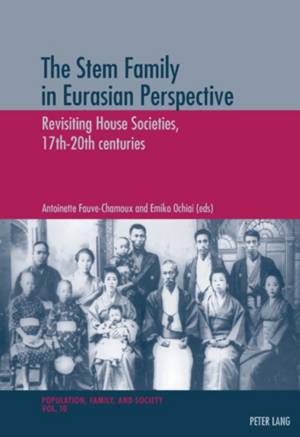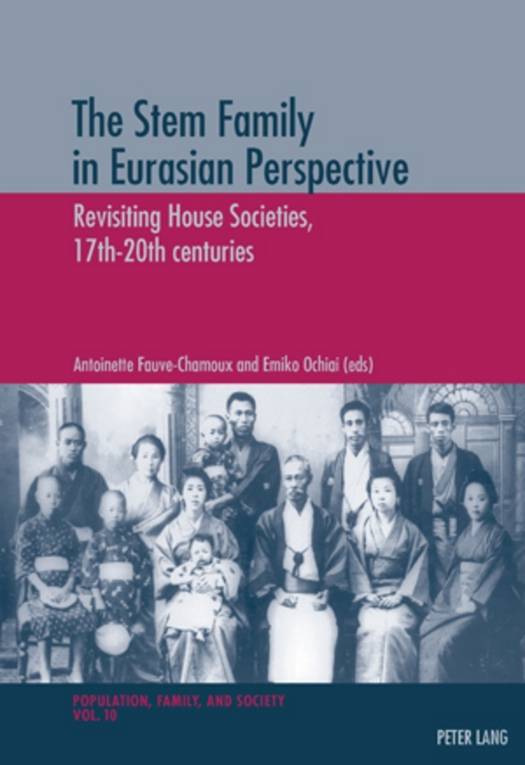
- Afhalen na 1 uur in een winkel met voorraad
- Gratis thuislevering in België vanaf € 30
- Ruim aanbod met 7 miljoen producten
- Afhalen na 1 uur in een winkel met voorraad
- Gratis thuislevering in België vanaf € 30
- Ruim aanbod met 7 miljoen producten
The Stem Family in Eurasian Perspective; Revisiting House Societies, 17th-20th centuries
Revisiting House Societies, 17th-20th centuries
€ 308,45
+ 616 punten
Omschrijving
Is the Asian stem family different from its European counterpart? This question is a central issue in this collection of essays assembled by two historians of the family in Eurasian perspective. The stem family is characterized by the residential rule that only one married child remains with the parents. This rule has a direct effect upon household structure. In short, the stem family is a domestic unit of production and reproduction that persists over generations, handing down the patrimony through non-egalitarian inheritance. In spite of its ambiguous status in current family typology as something lurking in the valley between the nuclear family and the joint family, the stem family was an important family form in pre-industrial Western Europe and has been a focus of the European family history since Frédéric Le Play and more recently Peter Laslett. However, the encounter with Asian family history has revealed that many areas in Asia also had and still have a considerable proportion of households with a stem-family structure. The stem family debate has entered a new stage. In this book, some studies that benefited from recently created large databases present micro-level analyses of dynamic aspects of family systems, while others discuss more broadly the rise and fall of family systems, past and present. A main concern of this book is whether the family type in a society is ethno-culturally determined and resistant to changes or created by socio-economic conditions. Such a comparison that includes Asian countries activates a new phase of the discussion on the stem family and family systems in a global perspective.
Specificaties
Betrokkenen
- Uitgeverij:
Inhoud
- Aantal bladzijden:
- 562
- Taal:
- Engels
- Reeks:
- Reeksnummer:
- nr. 10
Eigenschappen
- Productcode (EAN):
- 9783039117390
- Verschijningsdatum:
- 4/05/2009
- Uitvoering:
- Paperback
- Formaat:
- Trade paperback (VS)
- Afmetingen:
- 155 mm x 224 mm
- Gewicht:
- 816 g

Alleen bij Standaard Boekhandel
+ 616 punten op je klantenkaart van Standaard Boekhandel
Beoordelingen
We publiceren alleen reviews die voldoen aan de voorwaarden voor reviews. Bekijk onze voorwaarden voor reviews.








